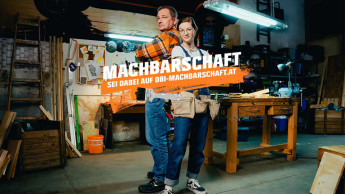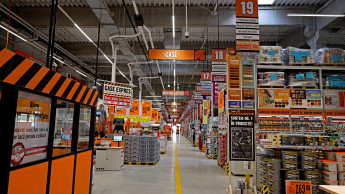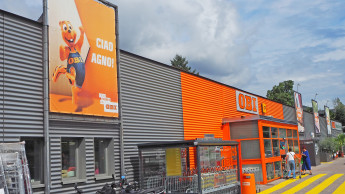Working to create new stores in the DIY arena should, at first glance, be straightforward. Arrange the products by category, make sure the aisles are wide enough and give the shoppers sufficient numbers of till points that they won’t have to wait for too long. And to a certain extent that is what DIY retail is about. The problem is that as DIY retailers have grown in size, the ability to achieve this kind of simplicity has become ever more complex. Within the German-speaking DIY market, UK design and strategy consultancy 20/20 has worked with Knauber, Baumax and Marktkauf to bring greater clarity to the process of product selection and payment. Marktkauf, owing to its heritage as a food rather than DIY seller, is naturally different from the other two retailers, but the same general principles apply here as well.
The first point to be aware of is that, as DIY retailers have increased in physical size, there has been a corresponding uplift in the number of individual products being offered. This has made the business of finding the right product less transparent for shoppers. You can now go to a number of DIY retailers and spend upwards of ten minutes before you even begin to come close to the product area that is the purpose of your shopping journey.
Never be dull” is the fundamental principle of 20/20, which was successfully applied at Knauber.
In part this is due to the fact that DIY has been split into hard and soft forms, with tools and building equipment being the mainstay of the former, while home “makeovers”, gardening and furnishings form the content of soft end DIY. Shoppers usually fall into one or the other type, dependent upon the kind of project that they are engaged in, but rarely both.
This means that for retailers such as Austrian DIY operator Baumax, which caters for both types of DIY shoppers, communication is at the heart of attracting and retaining customers. The essence therefore of the work carried out for Baumax was to make shopping easier while at the same time fostering a sense of emotional attachment to the brand.
This calls for the simplest system possible and “talking” to shoppers, from the moment they arrive at the car park to the point at which they exit the store. Signage and wayfinding should be the essence of any form of big-box retailing, but all too frequently are not. The Baumax project meant large-format aisle signage, colour-coded for added clarity, as well…

 Menü
Menü















 Newsletter
Newsletter